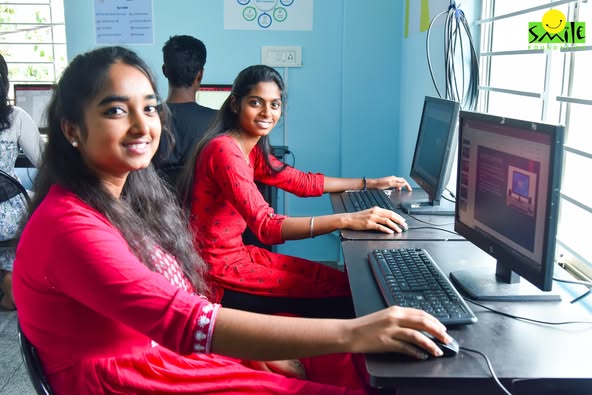In a world defined by continuous change, the importance of skilling has never been more pronounced. From technological innovations to global commerce, the landscape of work is evolving rapidly, demanding a fresh mix of capabilities. According to the Coursera Job Skills Report 2024, top skills include leadership in driving organizational change, expertise in AI, cybersecurity, and proficiency in web development. But skilling is no longer just about acquiring technical know-how; it encompasses adaptability, problem-solving, and emotional intelligence—traits essential for excelling in modern workplaces. Thus, understanding the dynamic nature of skilling has become important to obtain sustainable livelihoods and stay relevant in today’s workforce.
The drivers of change in skilling
The rapid pace of technological innovation, global economic shifts, and environmental imperatives are reshaping industries and professions. Automation and AI, for instance, are replacing traditional jobs while creating new ones in data science, machine learning, and green technologies. The World Economic Forum reports in 2023 predicts that by 2027, 23% of jobs globally will undergo significant transformation. This new paradigm demands not only technical expertise but also soft skills like adaptability and resilience to navigate ever-changing work environments.
Moreover, global commerce is increasingly interconnected. As companies expand their operations across borders, cultural intelligence and multilingual communication are becoming the need of the hour. These changes highlight how crucial it is for people to embrace lifelong learning and adaptability to keep up with the pace of change and stay relevant in their careers.
From technical proficiency to holistic skilling
Gone are the days when mastering a single technical skill guaranteed job security. While technical knowledge still remains vital, the emphasis is shifting toward holistic skilling. Leadership abilities, critical thinking, and collaboration are now as essential as coding or engineering expertise. According to a report by the World Economic Forum, over 50% of employees will require significant reskilling by 2025 to keep up with technological disruptions. Organizations are prioritizing problem-solving skills, self-management, and the ability to collaborate effectively. These “power skills” enable individuals to innovate, manage stress, and work cohesively in diverse teams.
Additionally, education systems and training programs are aligning with these demands. For example, India’s National Education Policy 2020 emphasizes multidisciplinary learning, integrating technical subjects with arts and humanities. This approach equips students with a broad skill set, preparing them for diverse career paths.
The role of technology in skilling
Technology is both a driver and enabler of the skilling revolution. Various digital platforms like Coursera, edX, and Skillshare have democratized access to quality education, allowing individuals from remote or underserved areas to acquire in-demand skills. According to a report by the National Skill Development Corporation (NSDC), online skilling programs in India saw a 2000% surge during the pandemic, with many participants from rural areas.
Artificial intelligence is also transforming how skills are imparted. AI-driven learning platforms provide personalized course recommendations, track progress, and even simulate real-world scenarios to enhance practical learning. For instance, virtual reality (VR) is being used to train healthcare workers, factory operators, and even teachers, offering immersive and hands-on experiences.
Skilling programs for low-income families
For youth from vulnerable communities, skilling is not just an economic imperative but a pathway to empowerment. Livelihood training programs focusing on employability skills—from carpentry and tailoring to data entry and digital marketing—are creating opportunities for sustainable income. These programs not only help bridge the digital divide but also encourage inclusion, enabling marginalized groups to participate in the global economy. By integrating a sociological perspective into skilling initiatives, societies can create a more equitable and sustainable future.
In India, schemes like the Pradhan Mantri Kaushal Vikas Yojana (PMKVY) and Deen Dayal Upadhyaya Grameen Kaushalya Yojana (DDU-GKY) have targeted rural youth, equipping them with skills aligned with market demands. These programs emphasize hands-on training, mentorship, and job placement, ensuring that skilling translates into tangible benefits.
Upskilling for empowerment
But, sometimes skilling extends beyond economic benefits; it brings about social mobility and inclusion. For young women in patriarchal societies, acquiring skills can be a stepping stone to financial independence, challenging traditional gender roles. Similarly, for individuals with disabilities, skilling programs tailored to their needs enable them to participate in the workforce with dignity.
Moreover, skilling programs often instill confidence, leadership, and a sense of purpose. These intangible benefits ripple through families and communities, creating a culture of aspiration and progress. For instance, community-based training centers in rural areas often double as hubs of social interaction and mutual learning which builds a sense of belonging and collective growth.
The future of skilling
The future of work will be defined by roles that require a combination of technical and human-centric skills. Emerging fields such as environmental, social, and governance (ESG) management, digital transformation, and project management are already shaping career growth trajectories.
As industries continue to evolve, the future of skilling will hinge on adaptability and foresight. Governments, educational institutions, and organizations must collaborate to create flexible, forward-looking curricula that anticipate market trends. Public-private partnerships can play a crucial role in scaling up skilling initiatives and ensure that they reach the most underserved populations.
For individuals, the onus lies in cultivating a “learn to learn” mindset. Continuous upskilling, whether through formal education or self-directed learning, will be indispensable in navigating the complexities of the modern world. As Prof. Deepa Mani of Indian School of Business aptly notes, “Innovation is not as much the ability to develop new ideas as it is the ability to break away from old ones.”
Smile Foundation and the rigour to skill the youth
Smile Foundation’s skilling program is a demonstration of how community-driven initiatives can create transformative impact. Through our specialized training centers across India, we empower youth from low-income communities with vocational training, technical expertise, and important life skills. The program includes diverse courses—from digital marketing and data entry to retail and customer service—enabling individuals to secure stable, dignified livelihoods.
In addition to vocational training, Smile Foundation integrates a strong focus on personal development, making the participants more confident and resilient by the team they have joined at their workplaces. By aligning with industry demands, our skilling programmes not only provide employment opportunities but also contribute to breaking the cycle of poverty, especially among underserved groups.
The changing nature of skilling reflects the broader transformations in society, economy, and technology. In this landscape, skills are no longer static credentials but dynamic tools for adaptability and growth. As we look to the future, the emphasis must shift from merely acquiring skills to nurturing a mindset of innovation, resilience, and inclusivity. In doing so, we can build a world where opportunities are accessible to all, enabling everyone to thrive in an ever-evolving global ecosystem.









